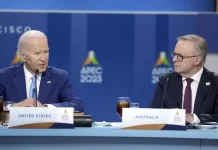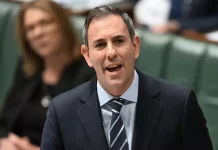A joint operation by the Oceania Customs Organisation (OCO) and the World Health Organisation codenamed “Operation EXIT” is expected to provide insights into how the region can combat the illicit trade of tobacco, which continues to be a major concern for the Pacific.
During the operation, participating countries will strengthen their targeting and profiling efforts on suspicious trade, identify the modus operandi of the traders of illicit tobacco and share this information for a regional database.
“Tobacco is a globally traded community that attracts a lot of taxes and because of the nature of the product- the trade of illicit tobacco is a very lucrative business- we all need to work together,” guest of honour, Papua New Guinea Chief Commissioner of Customs, David Towe said during his opening remarks at the launch of Operation EXIT.
Towe added that illicit tobacco, contrabands, and counterfeits were a major concern for his administration in PNG.
“We need to work together especially in the Pacific as we have limitations in resources and capacities,” Towe added.
In recent years, the illicit trade of tobacco products in the Pacific has increased. The most common form of illicit trade in the Pacific is the import of tobacco products, not adherent to domestic tobacco control laws hence these being smuggled into countries under the guise of legitimate trade or even by the exchange at high seas from the mothership to local vessels.
According to WHO, tobacco usage is an epidemic, a silent killer with 8 million people dying every year, of which 1.2 million were non-smokers, who had never chosen the habit but have been affected.
As this affects economies and the environment, Customs administrations have an obligation under the WHO Framework Convention on Tobacco Control.
OCO Head of Secretariat Richard Brennan said this was a concern for all Customs administrations as the trade of illicit tobacco not only eroded the revenue base for countries, but it also caused severe health effects.
“Customs has its obligation towards ensuring collection of rightful government revenues and protecting public health and safety. For several years, OCO members have discussed strategies on combatting illicit tobacco trade and individual countries have been undertaking their own national enforcement initiatives,” Brennan said.
“However, we wish to further strengthen the ability of our members to prevent the illicit trade of tobacco products across the Pacific; therefore, a regional approach is necessary. The development of a regional database would create a source of information for all members to assist them in strengthening their profiling capacity, said Brennan.
SOURCE: OCO/PACNEWS















